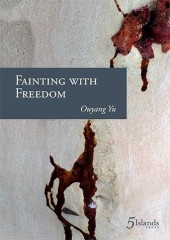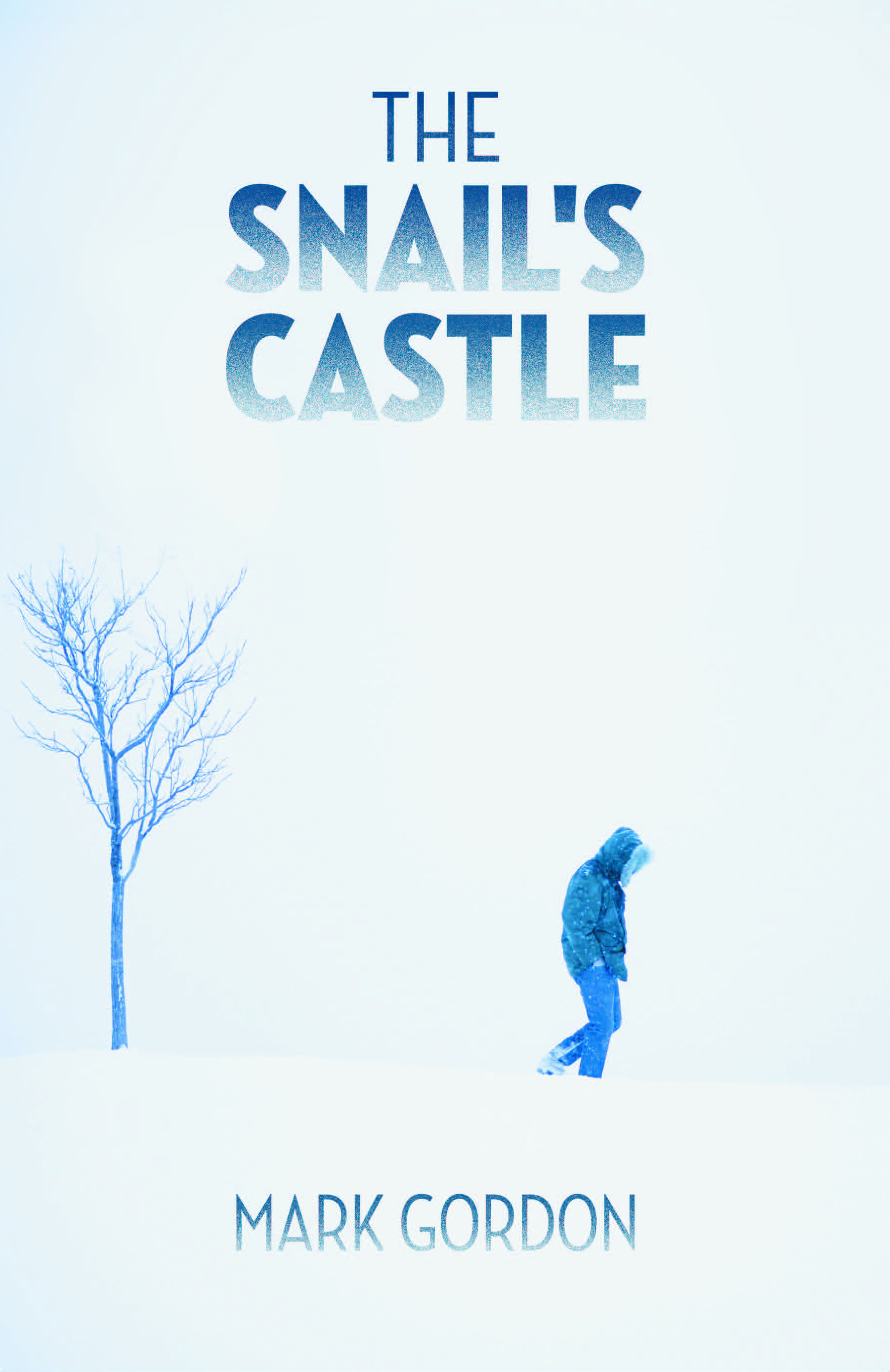 During the Crusades, European priests kissed cannons, by way of blessing them, as soldiers marched east to fight what was perceived as the threat of Islam. Instead of cannons, Antonio J. Hopson uses words as his weapon of choice in the poetry collection Seven, and that for the most part focuses on a love affair. “I am a poet. I use words” (Mr. Law, 31). Amazingly, his use of words gives the impression that this affair—at least for him—resembles the carnage of the Crusades.
During the Crusades, European priests kissed cannons, by way of blessing them, as soldiers marched east to fight what was perceived as the threat of Islam. Instead of cannons, Antonio J. Hopson uses words as his weapon of choice in the poetry collection Seven, and that for the most part focuses on a love affair. “I am a poet. I use words” (Mr. Law, 31). Amazingly, his use of words gives the impression that this affair—at least for him—resembles the carnage of the Crusades.
A review of Fainting with Freedom by Ouyang Yu
 Time and again, the poetry confounds expectations and unpicks itself, structurally, grammatically, and linguistically, presenting what looks like a story, a letter, a footnote, a telegram, a Wikipedia entry, a diary entry, or even a simple poem about a single thing, only to undo the stereotype, the perception, or the form, through a reworking of its conventions.
Time and again, the poetry confounds expectations and unpicks itself, structurally, grammatically, and linguistically, presenting what looks like a story, a letter, a footnote, a telegram, a Wikipedia entry, a diary entry, or even a simple poem about a single thing, only to undo the stereotype, the perception, or the form, through a reworking of its conventions.
A review of The Snail’s Castle by Mark Gordon
 For all its seriousness, The Snail’s Castle has a light, assured tone that makes for compulsive reading. At turns amusing and disturbing, it is among the most literary of literary works, with a deep intelligence that expects its readers also to be intelligent. That is a rare compliment that should be savoured.
For all its seriousness, The Snail’s Castle has a light, assured tone that makes for compulsive reading. At turns amusing and disturbing, it is among the most literary of literary works, with a deep intelligence that expects its readers also to be intelligent. That is a rare compliment that should be savoured.
A review of Spiralize! by Stephanie Jeffs
 For anyone who has a spiralizer or who has purchased one and is not using it to its full potentially, this book is a must. It’s a relatively small book, but by using it, you’ll begin to think more creatively about the different ways you can maximise the benefits of your spiralizer, giving it new life and enhancing your own through better nutrition.
For anyone who has a spiralizer or who has purchased one and is not using it to its full potentially, this book is a must. It’s a relatively small book, but by using it, you’ll begin to think more creatively about the different ways you can maximise the benefits of your spiralizer, giving it new life and enhancing your own through better nutrition.
A review of Swing State by Michael T. Fournier
 The unique writing style and sympathetic characters found in Swing State create an intriguing read. Fournier draws potent scenes depicting their struggles – returning from war, finding acceptance and approval, and asserting their own independence. Although each character has a unique story to tell, Fournier deftly interweaves and connects their lives until they come together in the explosive conclusion.
The unique writing style and sympathetic characters found in Swing State create an intriguing read. Fournier draws potent scenes depicting their struggles – returning from war, finding acceptance and approval, and asserting their own independence. Although each character has a unique story to tell, Fournier deftly interweaves and connects their lives until they come together in the explosive conclusion.
A Review of Like Family by Paolo Giordano
 For those who study fiction, form, or genre, Like Family should be required reading. It begins as a tribute but morphs into a eulogy for love itself, a stark realization that passionate and all-consuming love is far beyond the narrator, maybe beyond modernity. The story invites such an epic statement, but it also keeps us in check.
For those who study fiction, form, or genre, Like Family should be required reading. It begins as a tribute but morphs into a eulogy for love itself, a stark realization that passionate and all-consuming love is far beyond the narrator, maybe beyond modernity. The story invites such an epic statement, but it also keeps us in check.
An Interview with Justin Isis
 The author of Welcome to the Arms Race talks about his new novel and how it relates (or doesn’t relate) to his previous novel, about his favourite sci-fi writers, and particularly about Lawrence Miles, about the Singularity, Artificial Intelligence, and lots more.
The author of Welcome to the Arms Race talks about his new novel and how it relates (or doesn’t relate) to his previous novel, about his favourite sci-fi writers, and particularly about Lawrence Miles, about the Singularity, Artificial Intelligence, and lots more.
Christine Evans on Cloudless
The author of Cloudless reads from and talks about her new verse novel Cloudless, her unique characters, the way the book came together, why she used verse, about the interlinking lives, about Perth in the 1980s, about the magic in…
Cuba and Mali, Man and Woman: Diawara & Fonseca’s At Home (Live in Marciac)
 David Honigmann of The Financial Times wrote of the performers Fatoumata Diawara and Roberto Fonsecaand of the audience’s affection for the two artists alone and together, and of the developing harmony of the concert, the variety of Diawara’s singing, and the delicacy and power of Fonseca’s keyboard playing. The conscientious Diawara and the experimental Fonseca brought compassion, drama, friendship, and rhythm in their creation and exploration of a shared international musical palette.
David Honigmann of The Financial Times wrote of the performers Fatoumata Diawara and Roberto Fonsecaand of the audience’s affection for the two artists alone and together, and of the developing harmony of the concert, the variety of Diawara’s singing, and the delicacy and power of Fonseca’s keyboard playing. The conscientious Diawara and the experimental Fonseca brought compassion, drama, friendship, and rhythm in their creation and exploration of a shared international musical palette.
A review of Cloudless by Christine Evans
 The voice of the playwright is obvious in Christine Evan’s verse novel Cloudless. A rich blend of characterisation, setting, and powerful thematic weaving from poem to poem, the novel takes us deep into the heart of working class Perth in the 1980s. Each of the eight key voices who make up the story are on the cusp of something: their lives about to change.
The voice of the playwright is obvious in Christine Evan’s verse novel Cloudless. A rich blend of characterisation, setting, and powerful thematic weaving from poem to poem, the novel takes us deep into the heart of working class Perth in the 1980s. Each of the eight key voices who make up the story are on the cusp of something: their lives about to change.